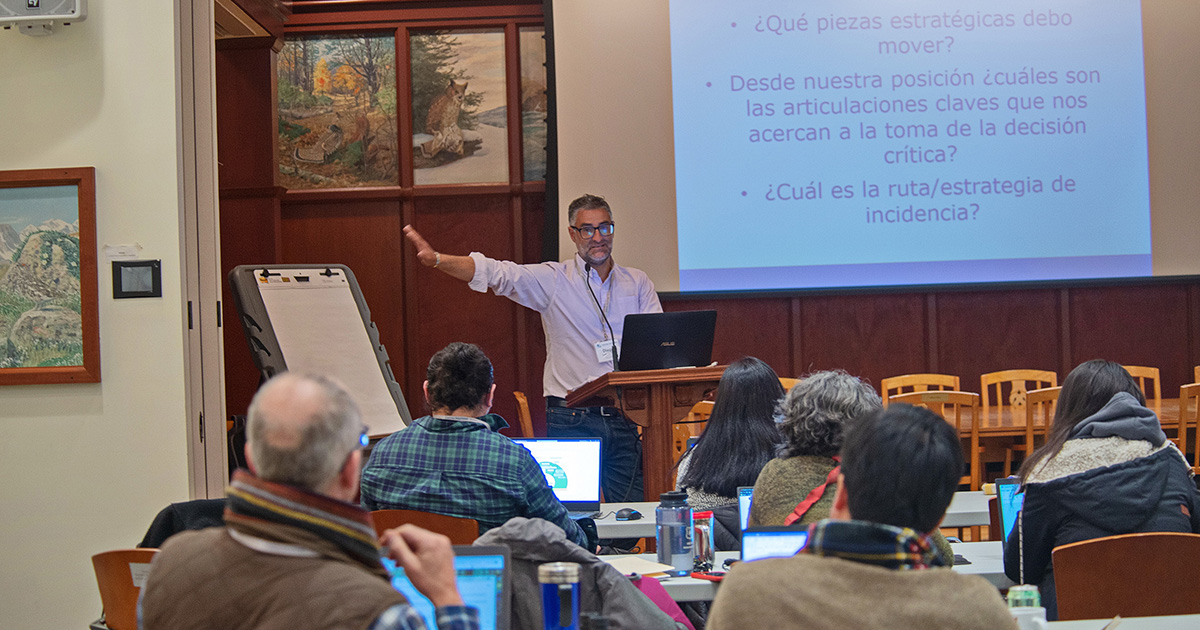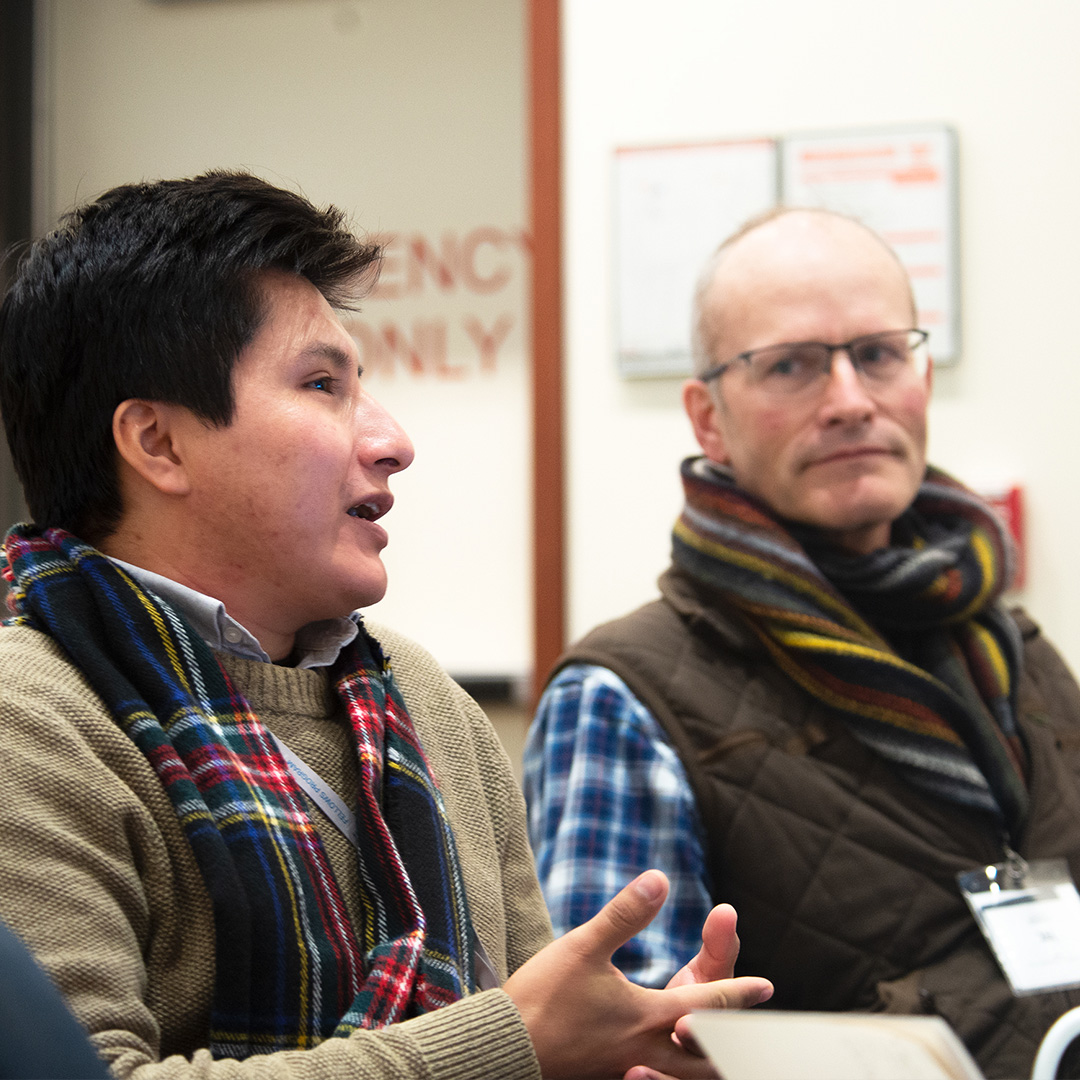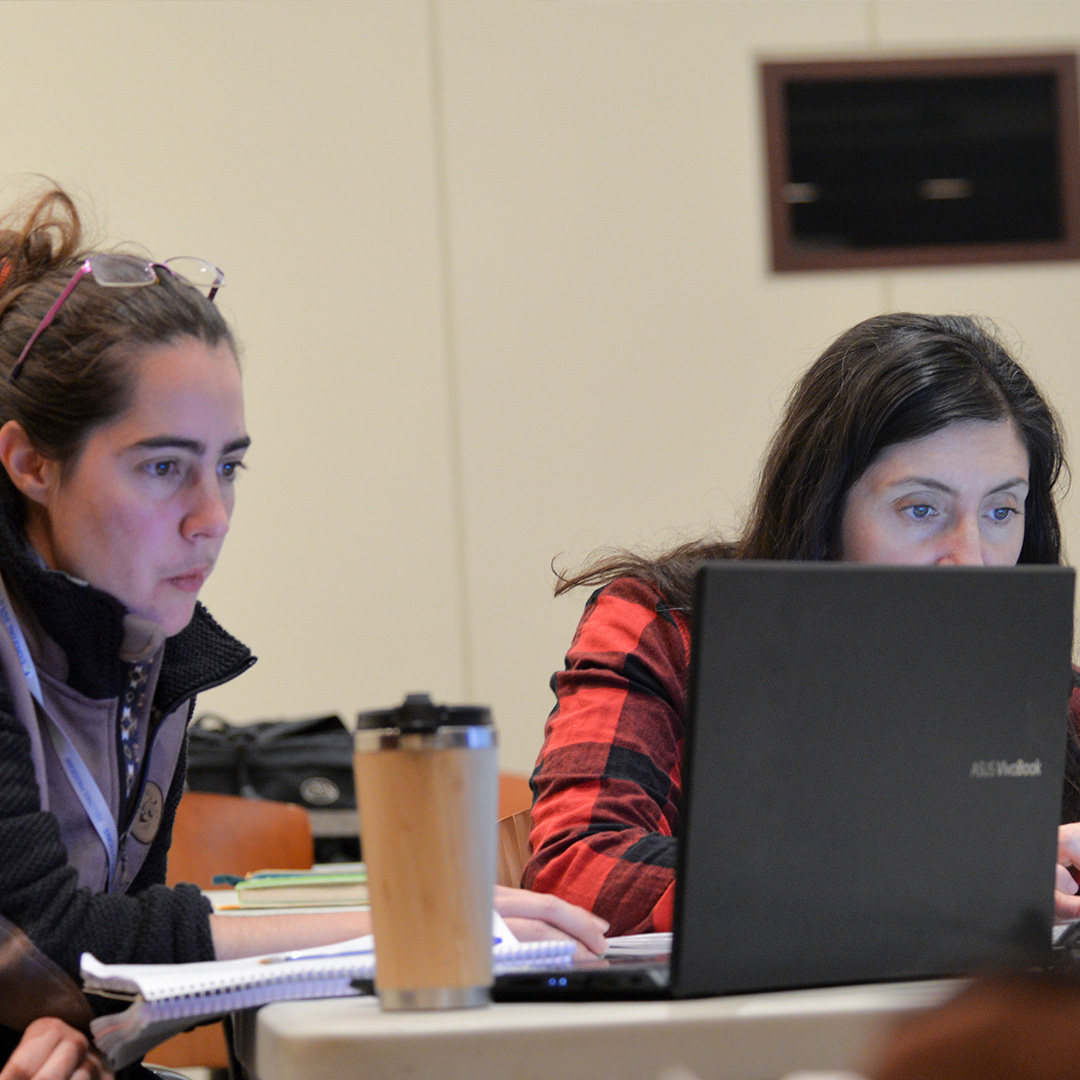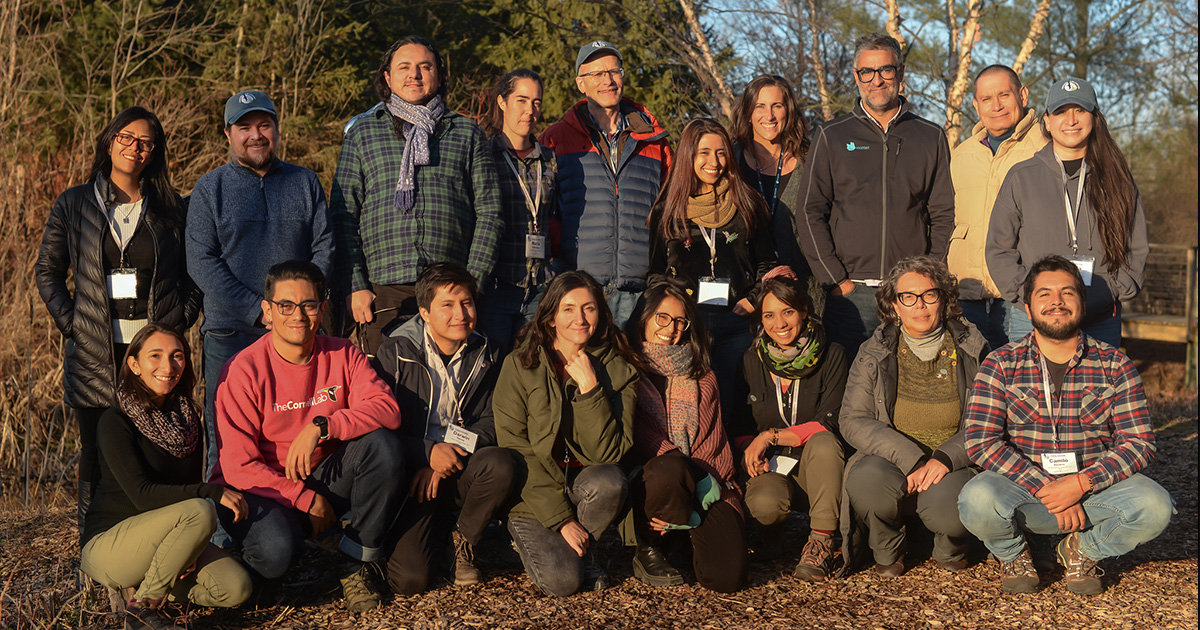Building Governance to Implement Effective Coastal Solutions

As part of the CSF Summit and for the fifth year in a row we convened the “Good Governance for Coastal Solutions” workshop, designed and facilitated by Diego Luna Quevedo, Specialist in Coastal Policy and Governance for Manomet/WHSRN.
This training has the objectives to present and discuss a conceptual framework on governance applicable to the coastal zone and shorebird conservation, as well as implement basic tools for analysis, planning and good governance management.
The two-day workshop began with the fellows giving an “elevator pitch” about the main challenges of their projects in terms of reaching agreements with their stakeholders. The agenda of the workshop was structured by different conceptual models, including challenges for the conservation of shorebirds in the Americas, a look into socio-environmental conflicts, and good governance in times of crisis.
We also applied tools for stakeholder analysis, for the simulation of critical decision-making, and for governance planning. The training also included basic orientations to facilitate conservation processes. Throughout the workshop, fellows and mentors built various key inputs, including a “Governance Action Plan” for their projects.
Osvel Hinojosa-Huerta, Director of the Coastal Solutions Fellows Program, highlighted that “the workshop on good governance is one of the central pieces in strengthening the capacities of fellows and mentors, generating strategic planning processes to implement successful solutions.”
Ballantyne Puin Castaño, 2023 Fellow that implements the project “Territorial Center for Conservation: a community led tourism effort based on bioeconomy” in Colombia, mentioned that “this workshop allowed me to have new tools to improve on the direction of the project. Alongside my mentor, we were able to identify the stakeholders that we had not yet considered and who are relevant and important for the success of this project, and we managed to prioritize key agreements that we need to reach with each of the relevant stakeholders and institutions.”


Daniela Ruz Alvear, 2023 Fellow that is implementing the project “Sustainable community-based tourism: a strategy for the conservation of shorebirds in 3 WHSRN sites in Southern Chile”, indicated that “the training was really thorough, as it was very useful to clearly organize all stakeholders in my project and identify the steps I need to take to develop good governance in the territory and with the authorities.”
For her part, Paola Villalba, collaborator of the project “Improving the resiliency of the socio-ecological system of La Segua, Ecuador” implemented by the 2023 Fellow Enrique Fornasini, commented that “the workshop became an essential tool in our case, as we have sensitive stakeholders with whom we need to achieve the right kind of approach. Now, we have methods, strategies and specific actions that will surely help us with our purpose.”
The format of the workshop combines the use of presentations, debates, dialogues, exercises, co-creation between fellows and mentors, and the development of collective knowledge. This workshop provides a solid foundation for the work that each fellow is implementing, and the conceptual framework and tools used during the sessions are adjusted based on the implementation challenges in each one of the projects selected by the Coastal Solutions Fellows Program.
